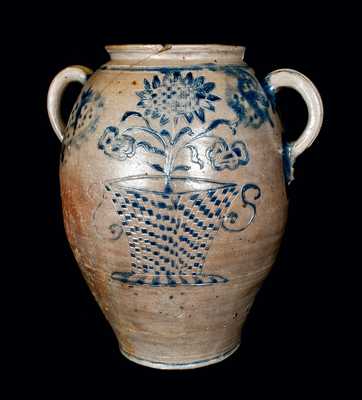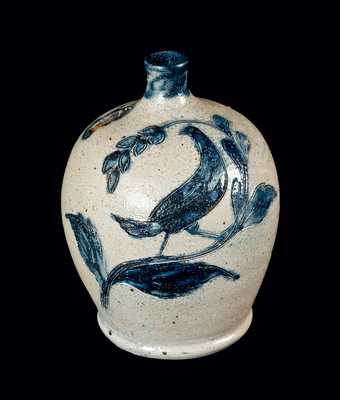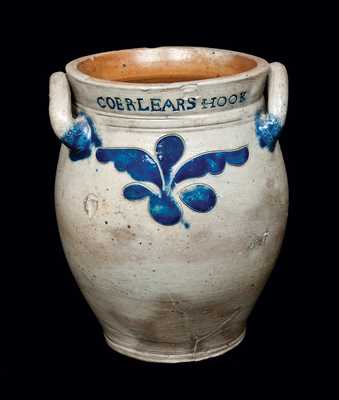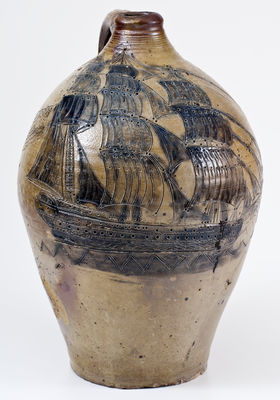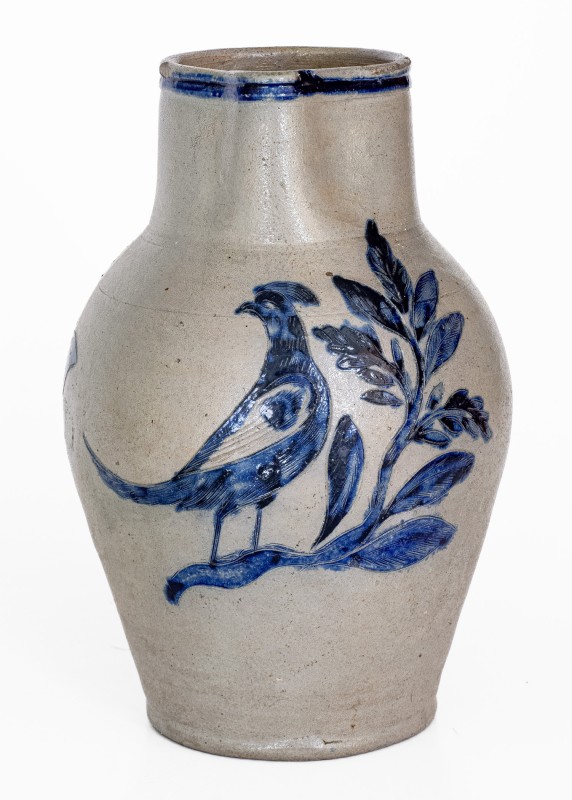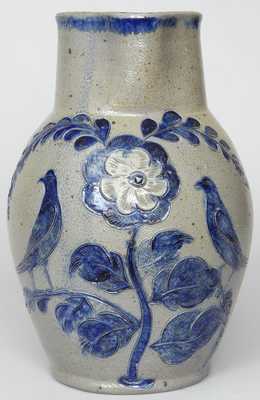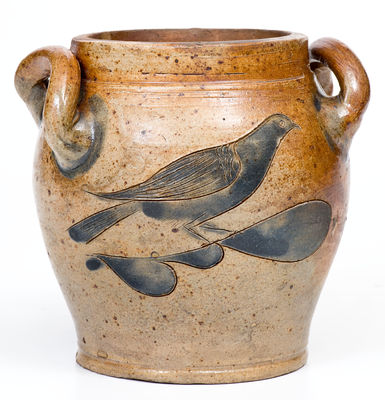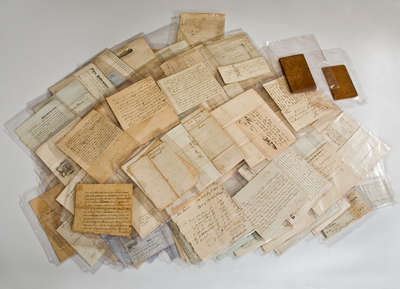Highly Important Small-Sized Stoneware Butter Jar, Impressed "MANTEQUILLA LEGITIMA DE GOSHEN, / ESPRESAMENTE PREPARADA / PARA / MORA Y. SOBRINO, / NUEVA YORK," New York City or State origin, circa 1865, cylindrical jar with rounded shoulder and squared rim, featuring cobalt-highlighted advertising in Spanish, the translation reading "GENUINE GOSHEN BUTTER, / EXPRESSLY PREPARED / FOR / MORA & NEPHEW, / NEW YORK." Located on Beaver Street in lower Manhattan, Mora and Nephew was headed by Antonio Maximo Mora, a Cuban immigrant who along with family members owned vast holdings in Cuban sugarcane plantations, alongside his New York City merchant concern. Mora was implicated as a revolutionary in the 1868 Cuban uprising against Spain; in Cuba at the time, he managed to escape back to New York disguised as a sailor. (Mora was actually sentenced to death by the Spanish government for his claimed role, one he denied. Another family member was sent to a penal colony in Africa, from which he also managed to escape.) Mora--who became an American citizen in 1869--had his $3 million property seized by the Spanish government, and his claim against Spain became "famous in the annals of modern diplomacy," mentioned specifically by President Grover Cleveland in both his 1893 and 1894 State of the Union addresses. A highly important example of mid 19th century Manhattan stoneware, this work is emblematic of the rapidly-changing demographic in America during the second half of the 19th century. It is the first example of American salt-glazed stoneware that we have seen bearing an inscription in Spanish. A 1 3/4" hairline from rim on reverse. Two tiny nicks to exterior of rim. A minuscule nick and small in-the-firing ping to interior of rim. Three base chips, one of which occurred in the firing. A minor U-shaped surface line to base. H 5 7/8".







